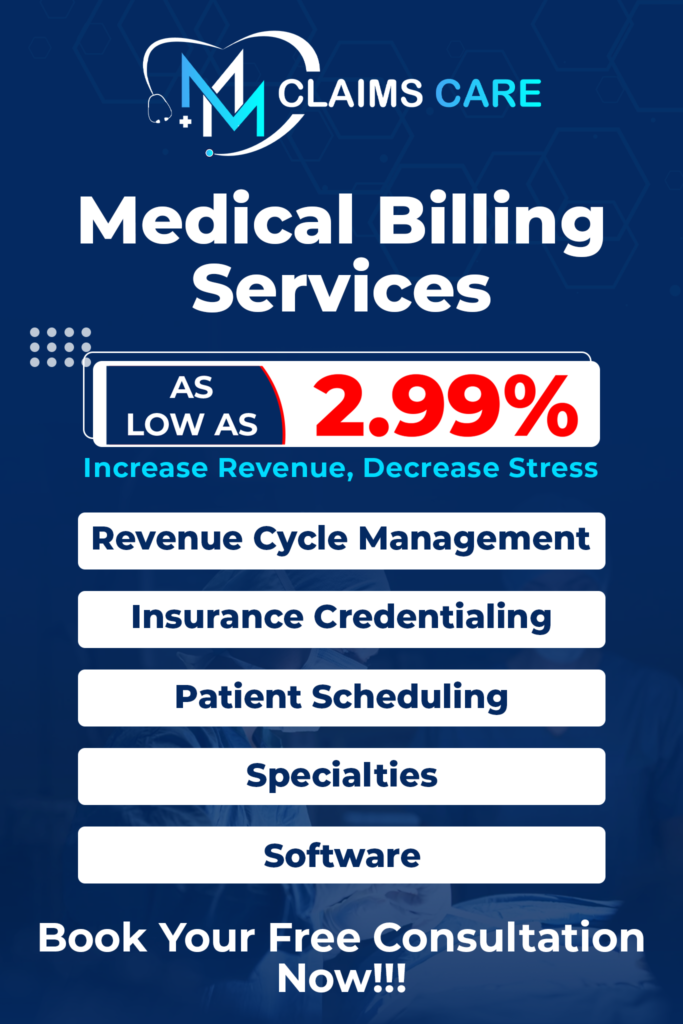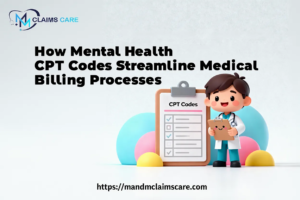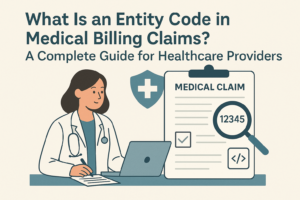An insurance card is more than a plastic card. It contains important information that is needed to verify patient coverage, helps prescription claims get processed accurately, and ensures that payments go to the right place. But reading this card is sometimes complex, as each insurance company has a different format and details.
From these details, you must have noticed one tricky code labeled RxBIN. Most people do not think about it and consider it just another number on the card. But in medical billing and pharmacy claims, that number plays a big role.
But do you know about it? Hope you are not. So let’s discuss what an RxBIN number actually is, why it matters in medical billing, and how using it correctly can be helpful in keeping your reimbursements accurate and timely.
What is an RxBIN Number?
RxBIN stands for Prescription Bank Identification Number. It’s a six-digit code used on insurance cards to identify which pharmacy benefit manager (PBM) should receive your prescription claim.
In other words, it tells the pharmacy’s system where to send the bill. It’s just like a ZIP code for your prescription claims that directs the claim to the correct network so it can be processed quickly and accurately.
Without the right RxBIN, your prescription might not even go through the system, or it might end up billed to the wrong plan. This is because:
- You hand your insurance card to the pharmacist.
- The pharmacist enters your RxBIN, RxPCN, and RxGroup numbers.
- The system uses that RxBIN to route your claim to the right PBM.
- The PBM checks your coverage, applies any copays or deductibles, and returns an approval or denial to the pharmacy.
If any of those numbers, especially the RxBIN, are wrong or missing, it can cause billing errors, payment delays, or rejected claims.
Where Can You Find the RxBIN Number?

If you’re looking at your insurance card right now, you’ll usually find the RxBIN number printed in the pharmacy section of the card. It often appears alongside other identifiers like:
- RxPCN (Processor Control Number): This helps further direct claims within the PBM system.
- RxGroup: That identifies the employer, organization, or group plan.
- Member ID: That identifies the insured individual.
For example, it might look like this on your card:
RxBIN: 610011
RxPCN: ABC123
RxGroup: RX12345
Member ID: 123456789
Not every insurance card lists these numbers, though. That’s usually the case with plans that don’t include prescription coverage. But for those that do, the RxBIN is essential for proper claim routing.
Why Does the RxBIN Number Matter in Medical Billing?
Now you may think about how RxBIN is connected to medical billing accuracy. So when we talk about billing and reimbursements, every code and number on a claim form serves a specific purpose. The RxBIN does not seem like much, but it ensures that your prescription benefits are applied correctly and that claims flow smoothly between the provider, payer, and PBM. Let’s show you the main reasons why the RxBIN number matters so much:
Accurate Claim Routing
Pharmacies rely on RxBIN numbers to know exactly where to send each claim. If the RxBIN is incorrect or missing, then the claim might get routed to the wrong PBM or insurer, which leads to immediate denials. And you know well that claim denials are not just frustrating for the patient, they create unnecessary back-and-forth for billing teams, delay reimbursements, and increase administrative workload.
Faster Claim Processing
When the RxBIN is correct, claims move through electronic systems seamlessly. The PBM identifies the plan instantly and processes the claim in seconds. That means fewer delays, fewer errors, and faster payments for providers.
In short, you can say that an accurate RxBIN = smooth billing workflow.
Reduced Claim Denials
Incorrect RxBIN data is one of those small mistakes that can trigger denials or rejections. And if your billing team isn’t careful, then these errors can turn into big problems and lead to wasted time chasing corrections or resubmitting claims.
That’s why accuracy at the data-entry level matters. It’s often the difference between same-day approval and weeks of delay.
Clear Coordination Between PBMs and Insurers
In today’s healthcare landscape, many patients have dual coverage or coordinated benefits. The RxBIN helps distinguish which PBM or plan is responsible for paying for a particular prescription.
Without it, your billing system can submit claims to the wrong payer, which results in duplicate submissions or confusion between primary and secondary payers.
How RxBIN Errors Impact Billing and Reimbursement
So what happens when that little RxBIN number is wrong? Let’s discuss some examples.
Claim Sent to the Wrong PBM
If a pharmacy enters an incorrect RxBIN by just one digit. The claim gets routed to the wrong PBM, which doesn’t recognize the patient or their coverage. As a result, claims go to rejection. The patient might have to pay more while the billing team fixes the issue.
Missing RxBIN on a New Plan
If a patient switches insurance plans but uses an old card by mistake. The RxBIN doesn’t match the new PBM, so the claim bounces back. The billing department then has to contact the patient, verify their new coverage, and resubmit the claim.
Wrong PBM Listed in EHR
Sometimes, errors come from within, such as when the electronic health record (EHR) has outdated or incorrect PBM information. If the RxBIN is outdated, the billing team might continue sending claims to a payer that no longer handles that member’s prescriptions.
In each of these cases, the solution is only one: use the right RxBIN. But the time lost in correcting and resubmitting claims adds up fast. That’s why attention to small details like this can save hours of billing headaches every week.
RxBIN and the Role of Pharmacy Benefit Managers (PBMs)
To understand why the RxBIN number exists in the first place, you need to understand the role of PBMs.
Pharmacy Benefit Managers act as the middlemen between pharmacies, insurance companies, and patients. They manage everything from drug pricing and formulary management to claim processing and reimbursement.
Each PBM uses a unique RxBIN code to identify itself in the billing network. So when a pharmacy submits a claim with a certain RxBIN, the system instantly knows, “this claim belongs to Express Scripts,” or “This one goes to CVS Caremark.”
Some examples of major PBMs and their RxBIN numbers are:
- CVS Caremark: 004336
- OptumRx: 610279
- Express Scripts: 003858
- Prime Therapeutics: 610455
- MedImpact: 003585
But remember that these can vary depending on plan type or employer group.
This setup allows PBMs to handle millions of claims daily without confusion. Each RxBIN acts as a unique routing code and helps your claims end up exactly where they should.
Common Misconceptions About RxBIN Numbers
We hear many myths most of the time that surprise us when working with providers and patients alike.
RxBIN stands for Bank Identification Number.
While it sounds similar, RxBIN doesn’t have anything to do with financial institutions or banking. It’s a “Bank Identification Number” in the sense that it identifies the processing system, not an actual bank.
All RxBIN numbers are universal.
Nope. Each PBM or insurance plan has its own RxBIN. Even if two plans are under the same parent company, their RxBINs can differ depending on the employer or coverage type.
You don’t need RxBIN for e-prescriptions.
Even for e-prescriptions, the RxBIN is crucial. It helps EHR systems know where to send the digital claim and ensures that the pharmacy gets paid by the right insurer.
RxBIN isn’t relevant for medical billing teams.
Actually, it’s very relevant. Billing teams need to verify pharmacy and prescription-related claims just as much as office visits, lab tests, or procedures. An incorrect RxBIN leads to denials that indirectly impact your revenue cycle.
RxBIN in the Context of Electronic Medical Billing
In the age of electronic health records (EHRs) and real-time claim submission, having the right RxBIN on file isn’t just about pharmacy claims but it’s about keeping your entire billing ecosystem aligned.
When a provider sends an e-prescription, that information automatically links to the patient’s insurance data. If the RxBIN is incorrect, then it can cause mismatches in both the clinical and financial parts of the record.
This creates extra work for billing teams and can confuse payers when matching prescription costs to coverage plans.
As an experienced medical billing company, M&M Claims Care helps healthcare providers ensure that all insurance data, including RxBIN numbers, is correctly verified before claims submission. This reduces rejections, improves payment turnaround times, and boosts overall billing accuracy.
How to Ensure RxBIN Accuracy in Your Billing Process
If you pay a little attention up front, then it can save you from bigger problems later. To do so, you need to follow some simple but effective ways that help to make sure your RxBIN number doesn’t affect your billing workflow.
Verify Insurance Details at Every Visit
Always check a patient’s insurance card for updates. Plans change often and an outdated RxBIN can cause rejected claims. Make it part of your front desk routine to scan and verify the latest information.
Update Your EHR Regularly
Ensure that your practice management or EHR system is synced with the current payer data. Outdated PBM information can lead to recurring errors across multiple patient files.
Train Staff on the Importance of RxBIN
Billing and front-desk teams should understand why RxBIN accuracy matters. A little education can go a long way in preventing costly errors.
Work with Experienced Medical Billers
Partnering with an expert billing company like M&M Claims Care can eliminate all these hurdles. We handle claim verification, data audits, and payer communication to ensure everything, including RxBIN data, is accurate.
Use Eligibility Verification Tools
Automated eligibility checks can instantly confirm whether a patient’s plan and RxBIN information are valid before submitting claims. It’s a quick step that can save hours of manual follow-up.
How M&M Claims Care Helps Improve Billing Accuracy
At M&M Claims Care, we know that billing accuracy isn’t just about numbers; it’s about building a reliable revenue cycle that supports your practice’s growth.
We help healthcare providers across more than 50 specialties minimize errors, reduce denials, and get paid faster by:
- Performing detailed eligibility and benefits verification before claims submission.
- Ensuring all payer and PBM data, including RxBIN numbers, are accurate and up to date.
- Handling claim resubmissions and appeals efficiently to recover lost revenue.
- Providing real-time claim tracking and transparency so providers always know where their money is.
Our goal is to provide you with the peace of mind that you deserve as a healthcare provider and give more time and attention to your patients.







